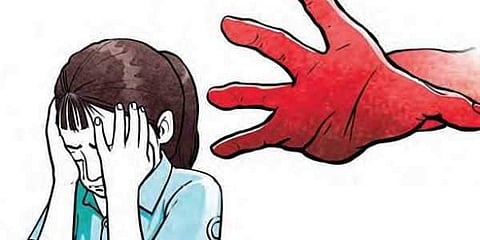

“My mother sold me when I was 14,” Mallika (name changed) says without batting an eyelid. “Where I come from, that’s just how life is.”At the edge of Anantapur’s vast expanse of swirling golden sand and parched earth that famines stalk year after year lies a cluster of tribal hamlets a few hours’ trek from one another. The inhabitants of the settlements, a semi-nomadic group of traditional liquor brewers called the Sugalis, who have for years been caught between the ban on country-made liquor and a drought-induced erosion of their customer base – poor farmers and farmhands, survive by selling themselves.
The precariousness of their situation and the lack of alternative jobs have brought about an almost complete shift in the ST community’s source of livelihood from bootlegging to forced prostitution.
Mallika, 23, and her younger sister, Rani (name changed), from Tanakal mandal are among the many Sugali women and girls who have been trafficked. The mandal under Kadiri revenue division, is one of Andhra Pradesh’s poorest and most illiterate areas. “Rani has come to terms with it. She knows no other way of supporting herself, ” Mallika deadpans.
Mallika recalls that food was hard to come by in her childhood, but things turned worse when her father fell sick. “He and his friends used to make alcohol illegally and sell it secretly. When he turned ill, my mother got in touch with a few traffickers in our village and sold us off,” she says.
A whopping 40 million people were enslaved across the world in forced labour and sex work last year, crimes the International Labour Organisation pegs to have generated around $150 billion.A study conducted by HELP, an anti-trafficking organisation working in AP for over two decades, with the support of Girls Advocacy Alliance and Terre Des Hommes estimates the number of girls from the state pushed into prostitution to be the highest in the country, almost 15 per cent of the total 18 million.“I’m free now, but there are countless others from my village who suffer in silence,” Mallika says.
She no longer goes to the house where she spent the early years of her childhood. The decrepit hut where her mother lives with her second husband and Rani is at least 20 km from the nearest hospital or school. “What has happened has happened. It was a question of survival,” the mother says. There is not a wisp of cloud in the sky to soften the rays beating down on the arid hamlet as she repeats, “It was a question of survival.”
Child Welfare Commission Chairperson Nallani Rajeshwari told TNIE that only a strong education system could help the people of the region take up other means of livelihood, but was unable to explain what steps the government was taking to improve the literacy rate in Kadiri.
ICDS (integrated child development scheme) project director Venkatesan too admitted that trafficking is a decades-old problem in the region. “We’re thinking of ways to integrate them with the mainstream, but the proposals are still at the planning stage,” he explains. He was, however, reluctant to divulge details of the plans.
Social workers TNIE spoke to said the 1993 ban on arrack (illicitly-distilled liquor) was a huge blow to the Sugalis, but revoking the ban is no solution. “There have been several cases of spurious liquor causing deaths in Kadiri,” REDS (Rural and Economic Development Survey) project director Bhanuja points out. “The problem started 20 years ago, but there is a lack of rehabilitation measures for those who have been rescued or have managed to escape from brothels,” she explains, adding that most of the women trafficked from AP end up in red-light areas in Pune, Mumbai, Delhi and Kolkata.
Rama (name changed) from Lakshminaik Thanda in the mandal hasn’t received any relief on returning home 10 years after she was kidnapped by two persons from her neighbourhood after her husband’s death and sold to a brothel in Delhi. “People ask me why I did not escape faster, what took me so long to run and if I didn’t want to go back to my son. Every single woman in a brothel wants nothing more than to get away, but all your energy is focused on staying alive,” she says.
In her first week at the brothel, Rama plotted to escape but before she could get far, she saw a woman almost her age being dragged back into the brothel. After thrashing and harassing the woman, her pimp plugged her hand into a socket and electrocuted her. It would take Rama a decade more before she could muster the courage to flee. “My parents were delighted to see me. They had for years believed that I had died. We were hopeful of getting monetary assistance from the government, but I haven’t got anything so far,” she says.
As per government orders MS No 1 and MS No 28, all victims of trafficking should be granted an immediate relief of `20,000 and a rehabilitation package of `1 lakh, but most victims TNIE spoke to said they hadn’t received the whole amount, if not anything.
“After a while it became clear to me that my parents didn’t want me around anymore. They were unemployed and could barely afford a meal a day. How could they support me?”Rama now lives with her mother-in-law and 19-year-old son. She does odd jobs to make ends meet. “My son is our hope now,” she says, the teenager standing by her protectively. He says he wants to be a cop.
Rama buries her face in her hands and cries softy.
